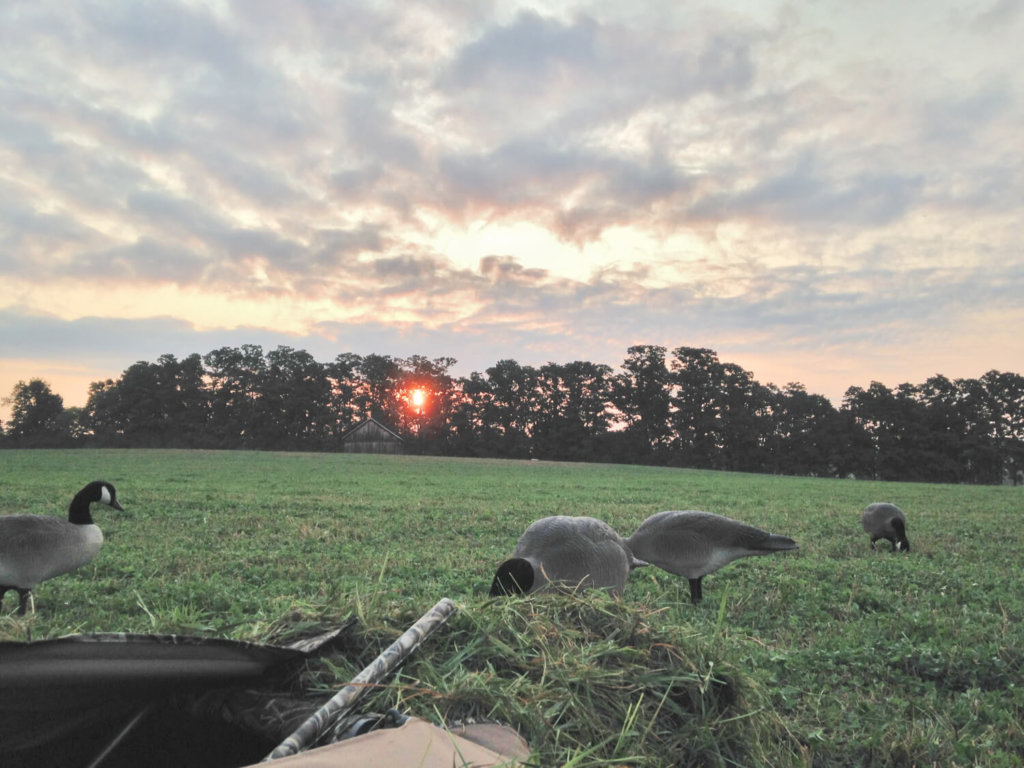The song of the Canada goose sings to our heart
 August is a month of abundance and preparation. Gardens are bursting with red ripe tomatoes, large leaf basil, squash and beans. Chili peppers are exploding on the bushes in green, red and yellow fingerlings, crying to be eaten. The days are still hot and humid, but the evenings bring spectacular sunsets and a cool gentle breeze that kisses the land with its promise of relief. The lake is at its lowest levels of the season and the scattered thunderstorms rush much needed water into the streams.
August is a month of abundance and preparation. Gardens are bursting with red ripe tomatoes, large leaf basil, squash and beans. Chili peppers are exploding on the bushes in green, red and yellow fingerlings, crying to be eaten. The days are still hot and humid, but the evenings bring spectacular sunsets and a cool gentle breeze that kisses the land with its promise of relief. The lake is at its lowest levels of the season and the scattered thunderstorms rush much needed water into the streams.
Summer’s last few hatches of flies are launching off the freestone bottoms of our rivers. Big buttery brown trout wait until the sun sets over the mountains to our west to rise lazily and sip the fat mayflies from the surface.
For a hunter, the season stimulates the senses. Hunters breathe in deeply the smell of the occasional woodsmoke from a campfire. They hear the songs of cardinals change and notice the goldfinch flitting from field to field in a brilliant display of flashing gold and yellow. Berries ripen under the midday sun and elderberries are easily plucked, their firework sprays of dark purple berries hanging off the branch like a tired and fruitful display just begging to be picked.
Elderberries signal the end of summer’s reach as the birds feast on them like a banquet of candy treats. Hunters gather their berries in large bags and comb through them, each individual berry being processed of its stems on a large cookie sheet, then frozen in five-pound freezer bags for elderberry pie, syrup and wine.
Another harbinger of autumn that the keen eyes of the hunters notice is the ever-growing congregation of Canada geese in the hayfields. Their numbers build daily. As this paper is being published the hunters note that there are only eight days left before the Resident Canada Goose Season begins, Sunday, Sept. 1. They can be seen driving around town with their windows rolled up and blowing wildly on their goose calls in the cabin of the truck, practicing their avian communication skills on the backroads of town. In the evenings they will sit out watching the bright orange sun set over the mountains, head cocking from side to side to adjust their ears to hear the distant “Her-onk” of the majestic birds.
There is something truly mystical about the call of a goose. The deep guttural first note, cracking into the second half like an adolescent’s unsure vocal inquiry into adulthood. Its sound resonates with our deepest self. The sound of solitary desperation to find our mate. The loud call of a desire to connect with our flock—to be part of something greater than ourselves. To navigate this life if only by the light of the moon and stars.
At one time or another all of us have felt lost and alone. The song of the Canada goose sings to our heart to tell us that somewhere out there in that open wilderness of sky, land and water, our true selves are always connected to the family of man. Just as the Canada goose seeks an existential thread to be a part of all that is around them, we too seek the same.
As the morning sun rises over the ridges to our east, hunters lie in their fields, surrounded by decoys. The sun slowly rises over the ridge and the last of the mist in the field burns off in the warmth of the sky. In the distance a gentle sound wafts over the distant trees. At first, they are not sure of what they have heard, but then, with no sound at all, a flock of dark objects with large wings is spotted over the trees on the horizon. The hunters lay flat in their coffin blinds covered with grass and the big birds begin to talk. Her-Onk! Her-Onk! Herrrrrrr-onk. They set their wings and glide through the crisp morning air, their black webbed feet dropping like landing gear on a large jet. Forty yards out they begun back-peddling toward the landing zone carefully constructed by the hunters. Guns are readied and one of the hunters is thinking, “I wonder how a smoked goose breast would be slathered in an elderberry chili pepper sauce?” Delicious, yes, but more important, the hunter desires to honor the wild nature of the bird by bonding their own wild nature to these magnificent birds.
Bradley Carleton is executive director of Sacred Hunter, a nonprofit that seeks to educate the public on the spiritual connection of man to nature.

